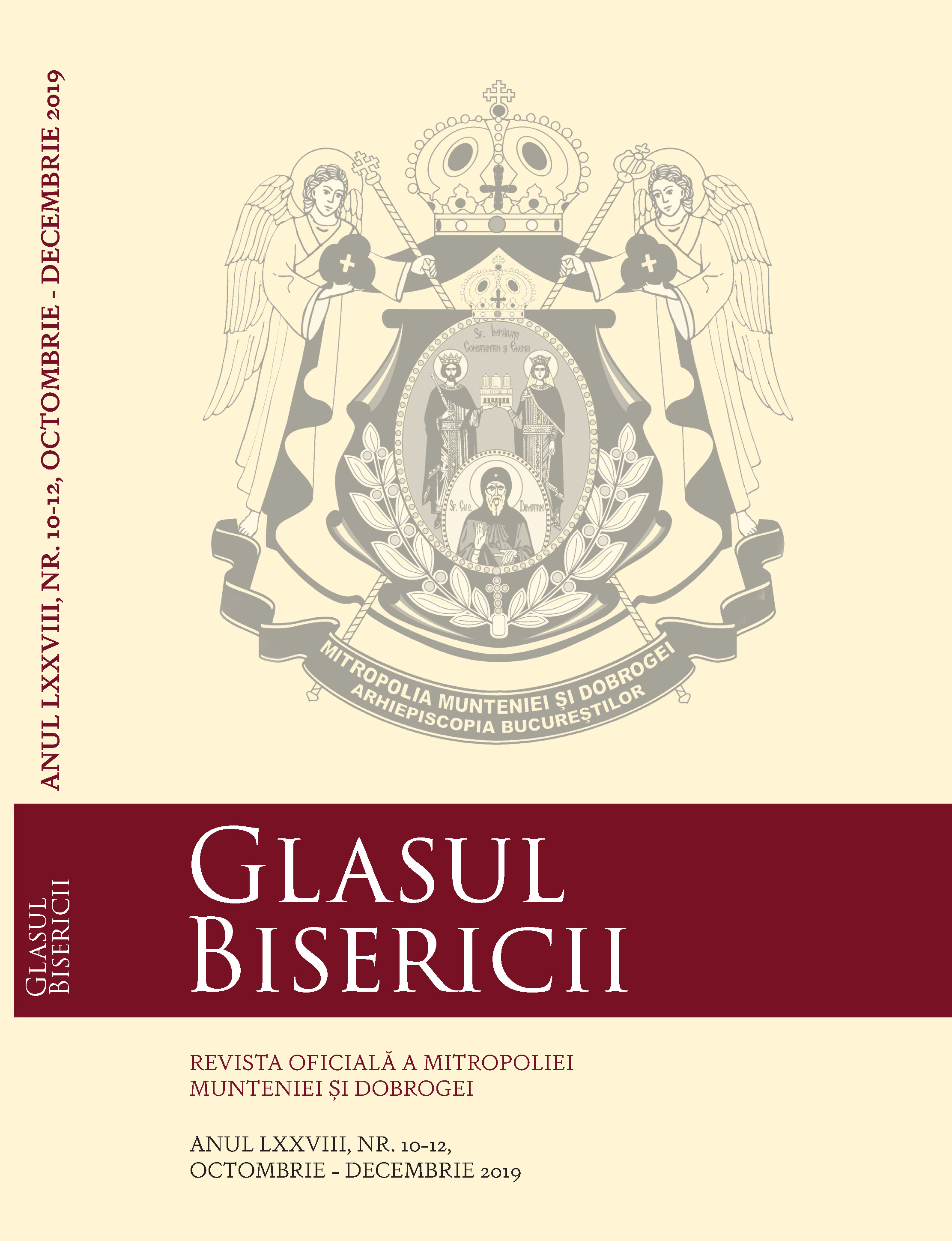Lumina cuvântului pentru cei mulți. Traducători din Țara Românească și operele lor
The Light of the Word for the Many. Translators from Wallachia and their works
Author(s): Policarp ChițulescuSubject(s): Christian Theology and Religion, Museology & Heritage Studies, History of Church(es), Bibliography, Preservation, Eastern Orthodoxy
Published by: Arhiepiscopia Bucureștilor
Keywords: translations; old Romanian language; theological literature; manuscripts; Antim the Iberian; Paisie from Neamț; Grigorie the Teacher (Dascălul);
Summary/Abstract: The oldest sources of Christian life in Romania (the treasure of liturgical books, needed for cultic activity, together with dogmatic, hagiographic, patristic and canonical literature) were directly received from Byzance, in Greek or by Slavic affiliation. In our presentation, we will insist only on the moments that have deeply influenced the development of orthodox spirituality, of the Romanian language and literature. We will highlight the beginnings of the printing of Romanian language translations, taking into account the intense influence and circulation that printed books had, compared to manuscripts. We will not neglect the especially important aspect of the introduction of the Romanian language in cultic activity, a process that was realised in stages by scholarly hierarchs, with the tacit agreement of the Eastern patriarchs. The second part of the study addresses the presence of Saint Paisie from Neamț and the contribution of his translation school to the development of Romanian literature. The modern period of the Romanian literature has its beginnings also in the translations made by scholar monks in the monasteries from Moldova and Wallachia: Neamț, Dragomirna, Secu, Căldărușani, Cernica etc. The goal set by these translators was the soul’s salvation of those who read. The readers, by the help of the saintly texts, would learn how to repent and change their life, according to the Gospel of Christ, in order to acquire eternal life. Moreover, the translations have a moral and social practical utility. By its highly elevated expression, the liturgical language became a stilistic model and an inspiration source for Romanian poets and writers. Moreover, the religious books translators have enriched theological literature, but also Romanian literature, making an essential contribution to the development of the liturgical language and to the Romanian literary language.
Journal: Glasul Bisericii
- Issue Year: 78/2019
- Issue No: 10-12
- Page Range: 249-271
- Page Count: 23
- Language: Romanian
- Content File-PDF

